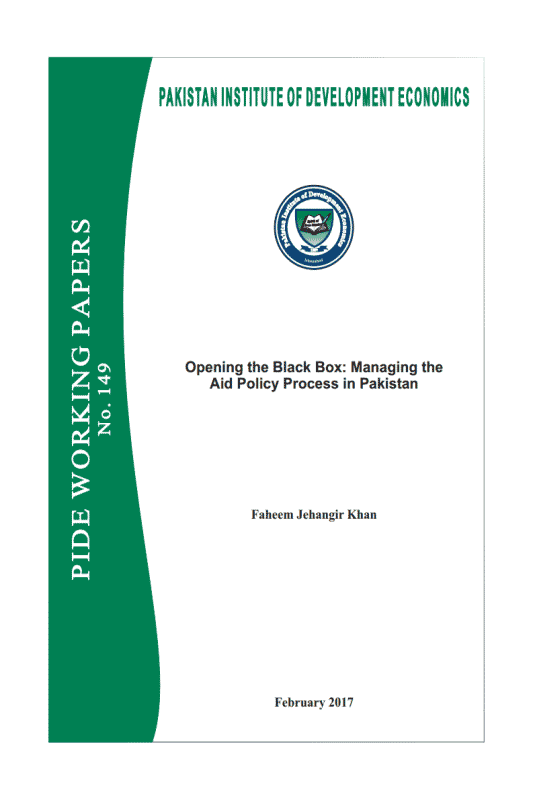
Pakistan Institute of Development Economics
- Home
Our Portals
MenuMenuMenuMenuMenuMenuMenu - ResearchMenuMenuMenuMenuMenuMenuMenu
- Discourse
- The PDR
- Our Researchers
- Academics
- Degree Verification
- Thesis Portal
- Our Portals
Opening the Black Box: Managing the Aid Policy Process in Pakistan
Scholars have suggested the need to open the ‘black box’ of the aid delivery system to gain a deeper understanding of how the aid policy process works in practice. This research responds to this gap in the literature by exploring how donors and the Pakistan government interact in game and network settings to manage foreign aid in the complex aid policy network. 8sing Klijn and Koppenjan’s (2016) process analysis, this research explores specific network management strategies actors employ to govern the aid policy process, and facilitate game and network interactions. The findings indicate that connecting strategies were the most prevalent strategies in managing the aid policy process in Pakistan. In strategic donorgovernment interactions, incentives, research, and informality not only promote collaboration and cooperation, but also enable actors to mitigate stagnation and influence policy decisions. New insights from this research are valuable in improving existing knowledge about how the aid community interacts and manages the aid policy process on the ground; which would eventually contribute to the understanding of aid effectiveness.



